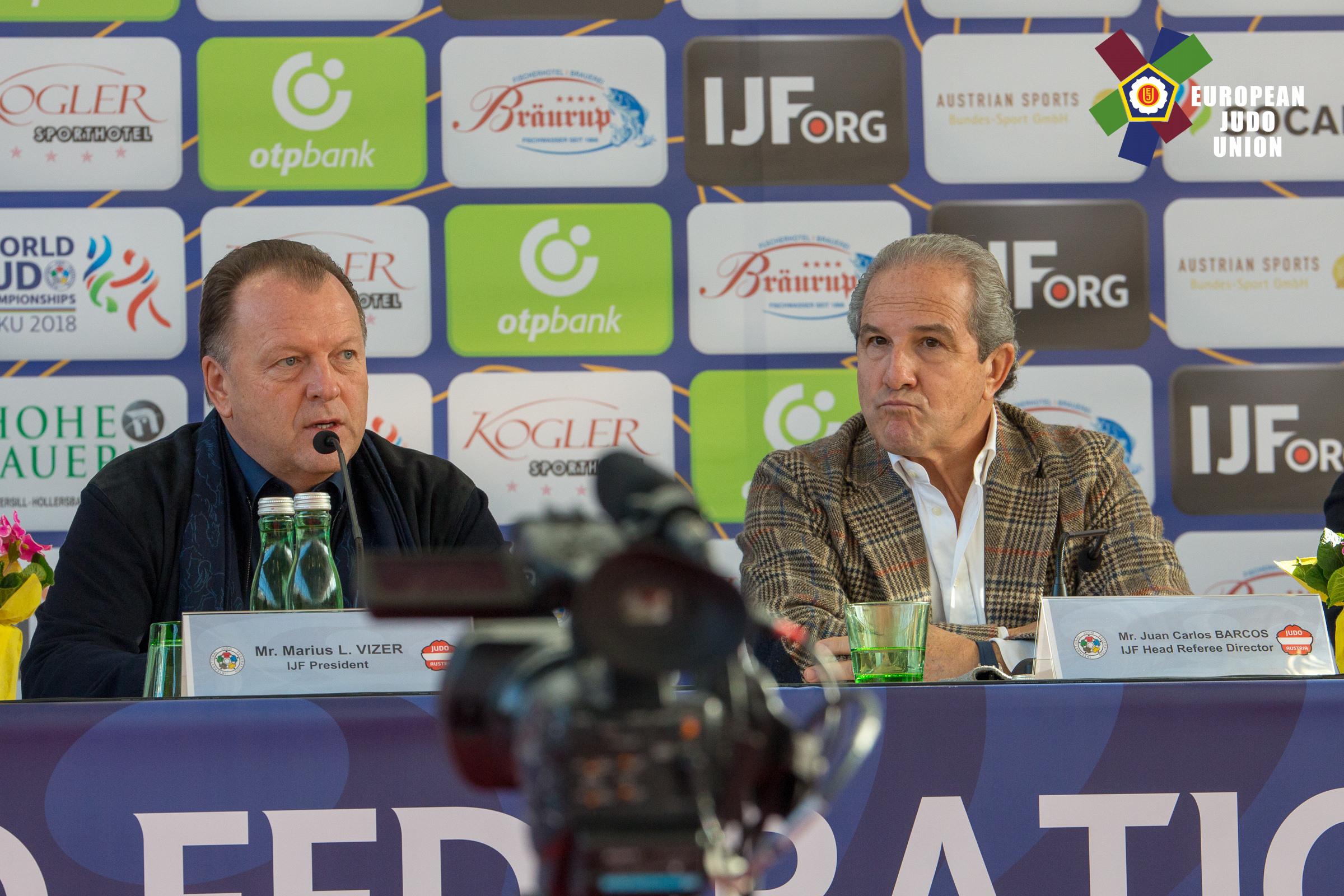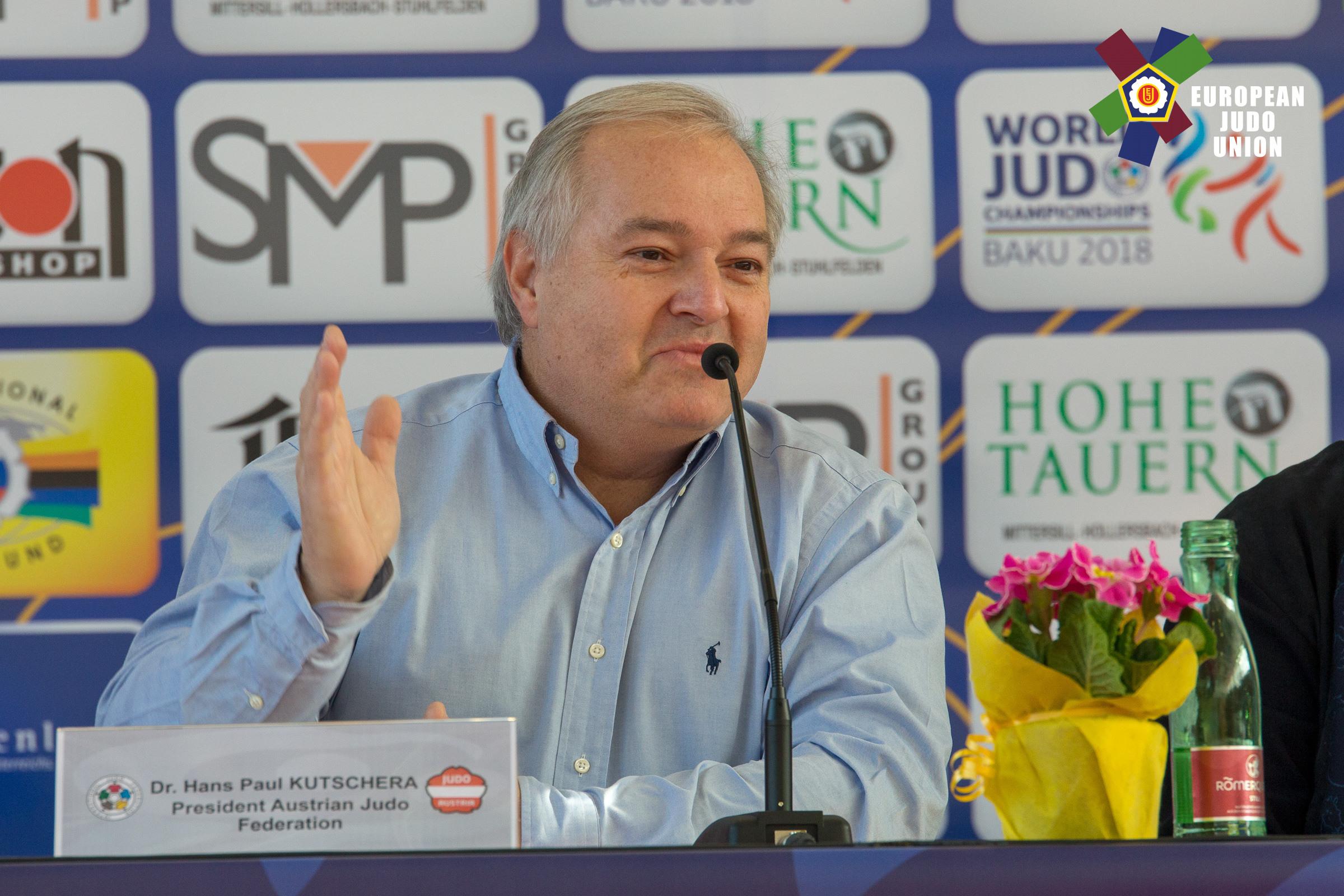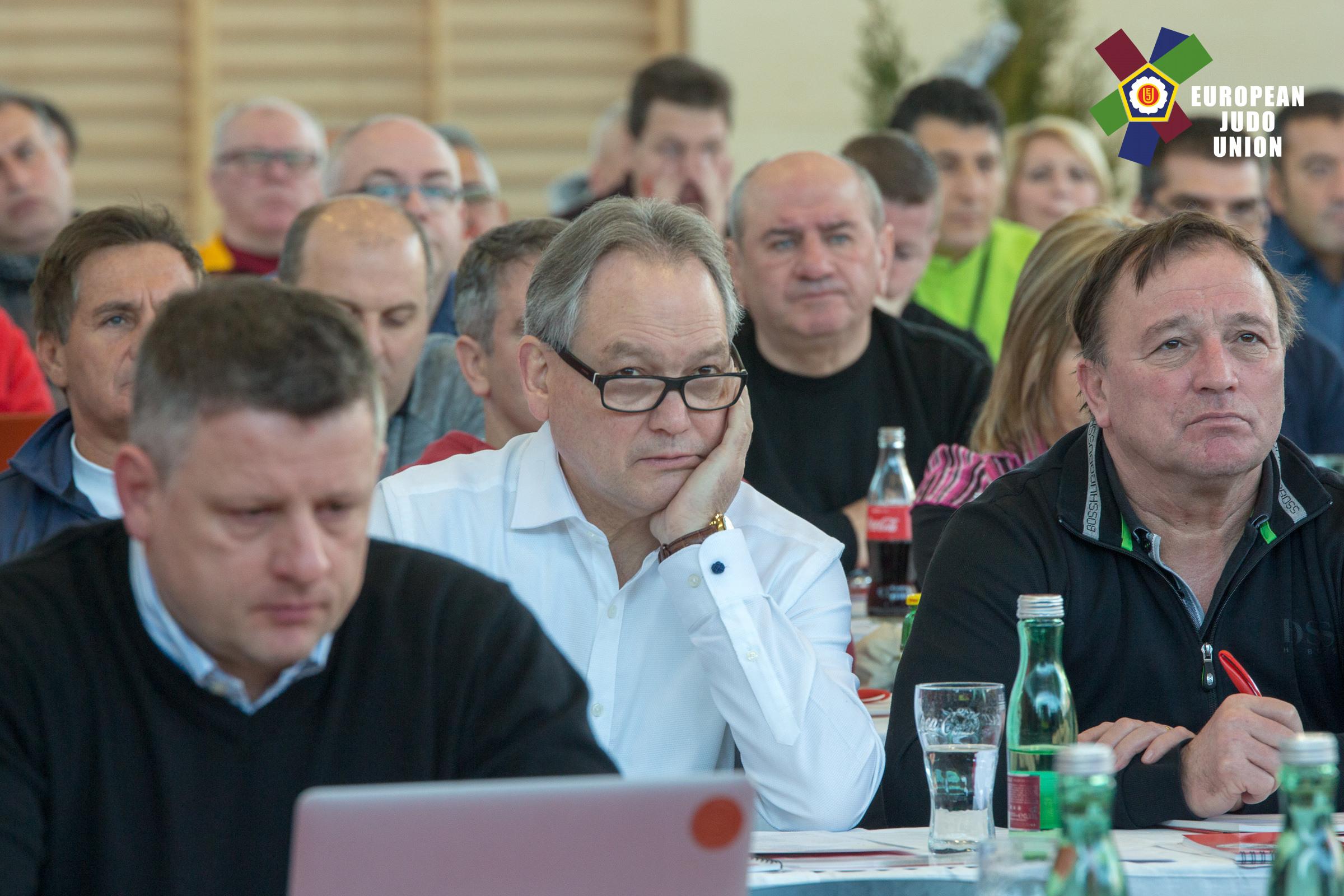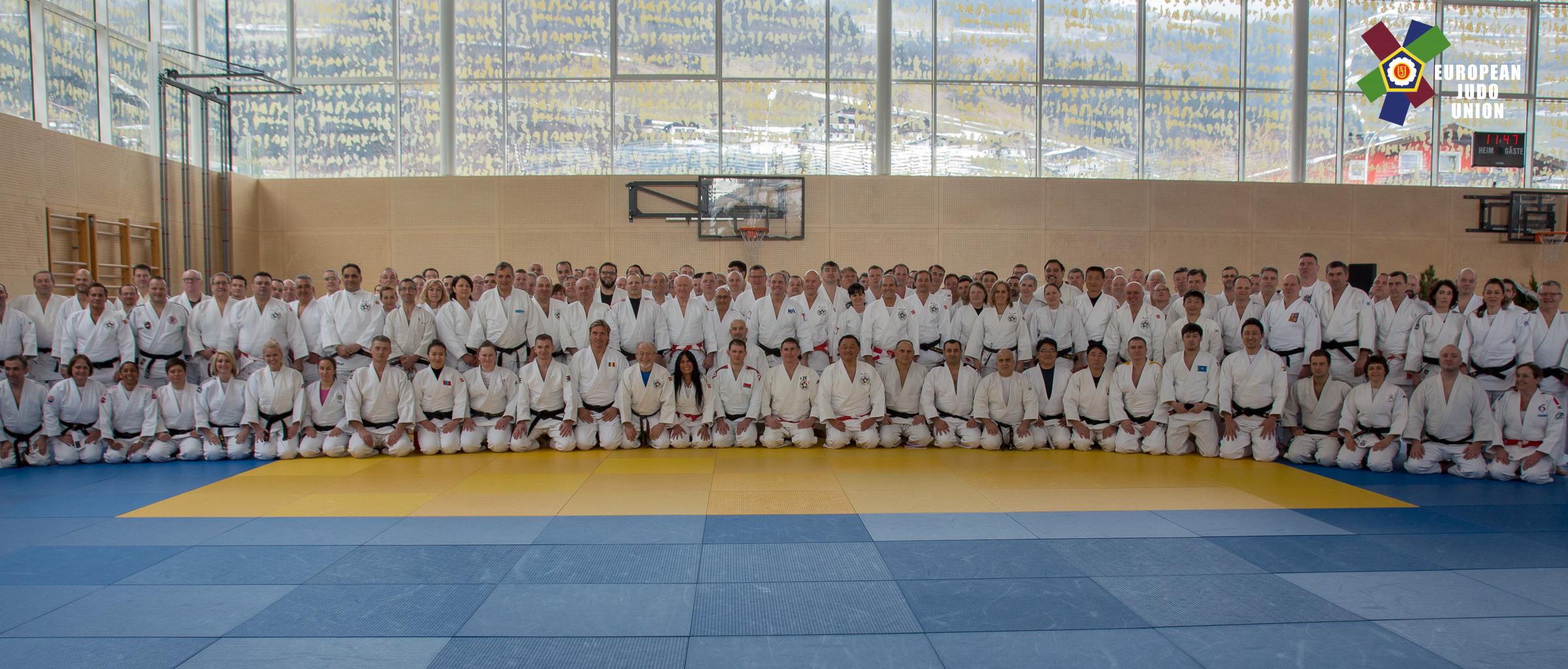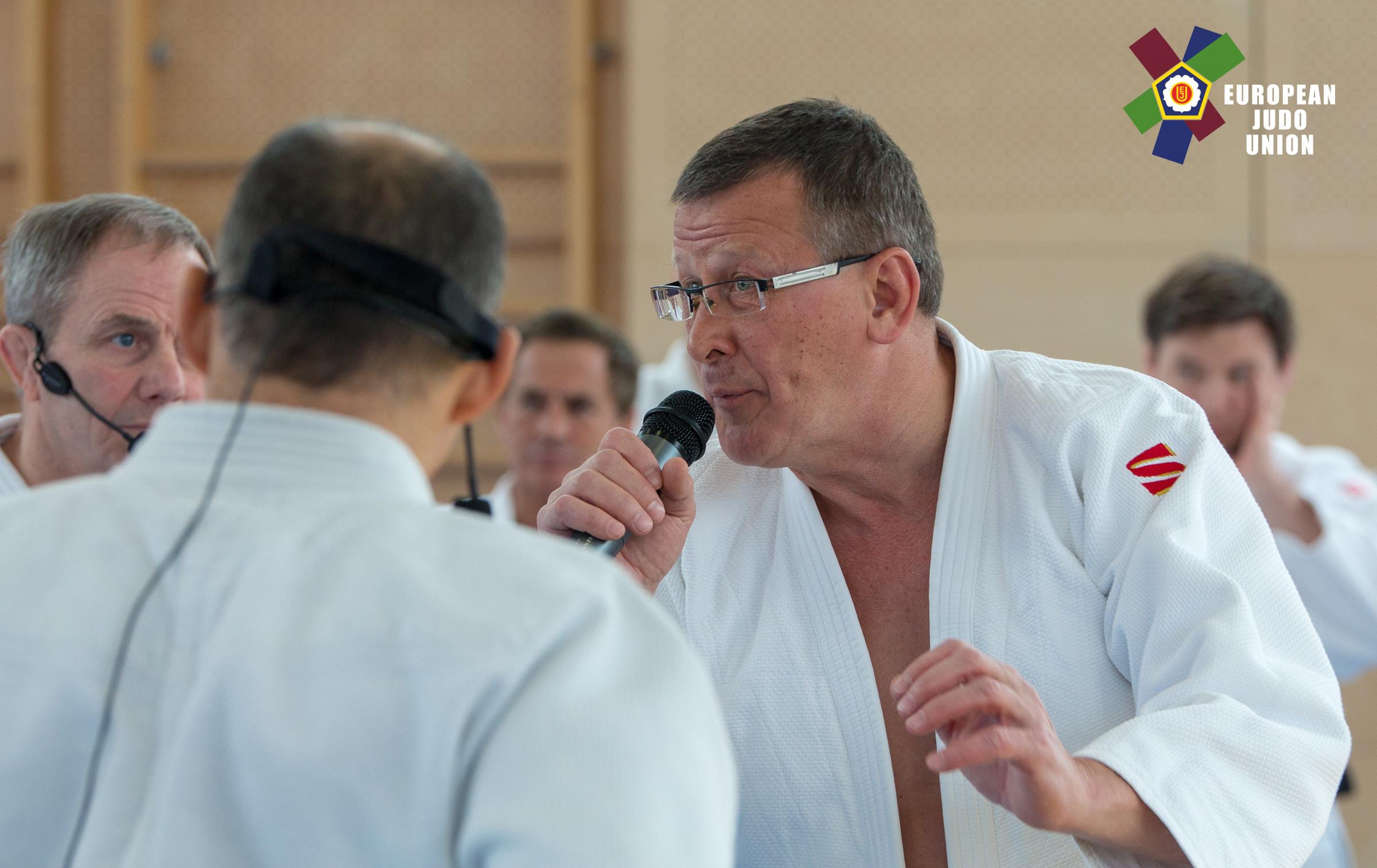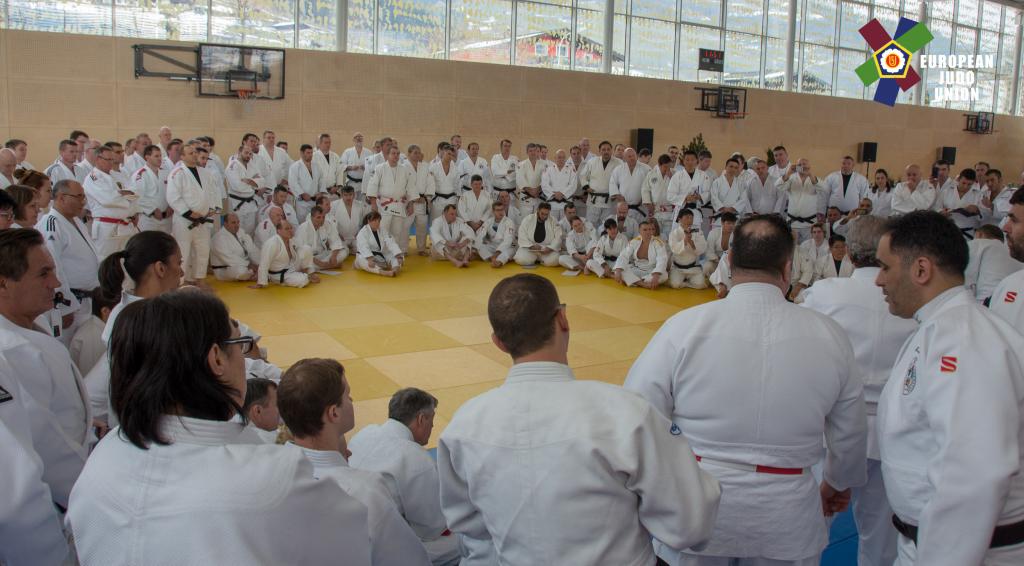The International Judo Federation in co-operation with the Austrian Judo Federation hosted this year’s IJF Coach & Referee seminar in Mittersill. Unlike previous years, this year, a seminar will be held at each continent. The event carried out across two-day and involved different discussions applying both, theory and practical method before finalising the rules towards Tokyo 2020. Over 200 participants attended at the seminar.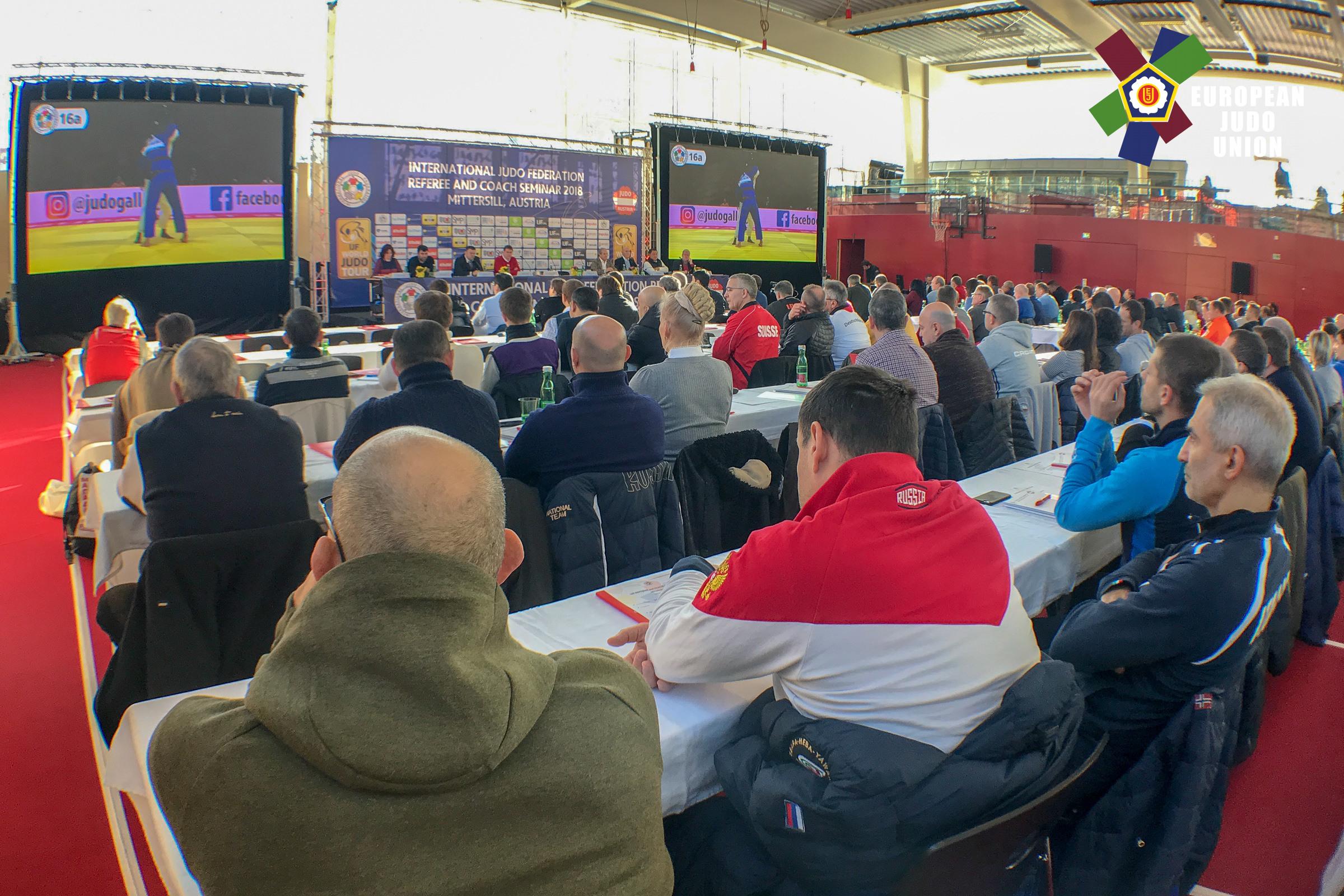
The President of the International Judo Federation, Mr. Marius Vizer was also at present greeting all participants and supported the seminar;
“Dear Colleagues.
First of all, Happy New Year, I wish you good health, lots of achievements for 2018. Congratulations for all your results and achievements for 2017. I think the most important for all, especially athletes, coaches and referees is good health. I think we start the year off on the right foot. It is great to see lot of participants here and I hope that at the other continents it will be the same interest for the seminar and for the interpretation, obligation of new rules. We continue to go on with the rules established last year, but, there can be unexpected situations on the way, because you cannot predict and expect to cover all unexpected effects of the rules. So, the refereeing team with the educational team and in cooperation with you, we will see how to solve difficulties, in case one would appear. We have a beautiful sport but I think the most difficult one in the world amongst all sports. We must have a standard for the rules and deal with the consequences, rather than assume. Thank you again for your cooperation and support, I wish you a successful seminar.” EJU Vice-President and President of the Austrian Judo Federation, Mr. Hans-Paul Kutschera also welcomed the crowd; “Dear Delegates, Coaches and Referees, I am very happy that you are here in Mittersill to attend this meeting and most of all I am happy that we have the IJF President, Mr Marius Vizer here with us today, which gives this meeting a great value. I hope all facilities are working well and I hope you are well and happy. Once again, welcome and I wish you a very good seminar.” Following statistics from 2016 and 2017, there is a clear progression in regards to implementation of the new rules. Although, the recent changes are quiet slight, it is still for the benefit of our sport, judo. Utilization of over hundreds of different video clips allowed to support analysing and clarifying all arising questions. What exactly happened over the weekend? Throughout the first day, different topics were conversed, such as, clarifying the difference between Ippon and Waza-ari for which, a clearly arrowed explanation is in place. Requests in regards to landing on both hands, both elbows, or in combination of the two was also clarified; together with landing on one elbow or one hand only. Explanation of counter attacks and whether there should be a score awarded or not, and if so, to whom, was also part of the morning block. Different scenarios of false attacks, bridges and head defences were all discovered too. By the afternoon, topics such as, mate vs score, shime-waza with stretching uke’s leg, inactive judo and certain kumikata situations have been under consultation. EJU Head Referee Commissioner, Mr. Franky De Moor, expressed his thoughts after the first day; “It is clear that there are areas which yet to be clarified. There is some misunderstanding about certain topics and I am sure that by tomorrow all the grey areas will be solved. That is why we are here for. There are not so many changes in the rules, we stepped back to issues which we have handled previous years, so I am curious how those questions will be answered but surely, or I hope, by end of tomorrow we will have all the answers.” Still recapping day one, we asked 2016 Rio Olympic Referee, Friedrich Annamaria (HUN) to share her view so far; “I think the seminar is really well organised. Despite the fact that the OTC itself is extremely busy, the Austrian Judo Federation did a great job, so for that, I would like to congratulate them. In regards to the seminar, it is very interesting because, although, we are here to finalise small details and smooth over areas which are unclear, these topics, or areas if you like, are very important. Especially, the implementation of them, whilst making sure that every single one of us are in balance. We have to make sure we are keeping up the same routine week in and week out, to make sure for example every single waza-ari be awarded as waza-ari on every mat of every tournament. I think this is the hardest part in judo hence the reason it is a complex sport. A small difference in decision can cost a lot and can win or lose a fight for the athletes. Therefore, this seminar is very important and useful to support our work. Regardless of the years of experience I have, there is always space to improve. There is always something new, a new style of grip or can be a new throw, anyhow, it is important that us referees are always up to date. To do so, I think it is important that we go on the mat on the regular basis for practice.” The second day spent more with different scenarios studying transitions as well as continuation of movements. Waki-gatame conditions were also discussed. After a short theory session, all participants continued the seminar with a practical part. During which was all discussed in the past day or so, have been put in action to clarify all grey extents. EJU Head Refereeing Director, Mr. Alexandr Jatskevitch also shared his view in regards to the seminar; “First of all, thank you very much to the IJF bringing this seminar to Mittersill. It is a right place because it allowed more coaches to take part and gain new knowledge. Secondly, the Austrian Judo Federation also did a great job to host the seminar, it is really well organised. The place is comfortable and it is organised with a dojo, which will allow us to practice as well as analysing videos. Now we have clear guideline for refereeing and I also believe that coaches learned how to prepare their judo players to escape negative judo. To me, this weekend was very positive.” IJF Head Referee Director, Mr. Juan Carlos Barcos led the team throughout the weekend. Let’s hear his overview about the past two days. Moving forward, the last minor changes, only if must, can be made after the 2018 World Championships. From that moments onwards, it will be a clear direction for all heading to Tokyo 2020.